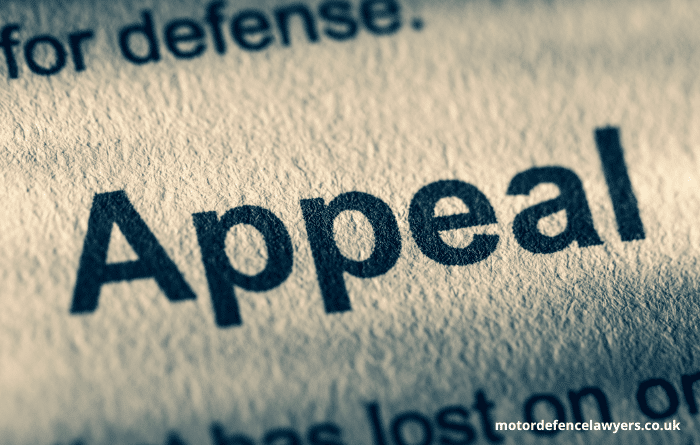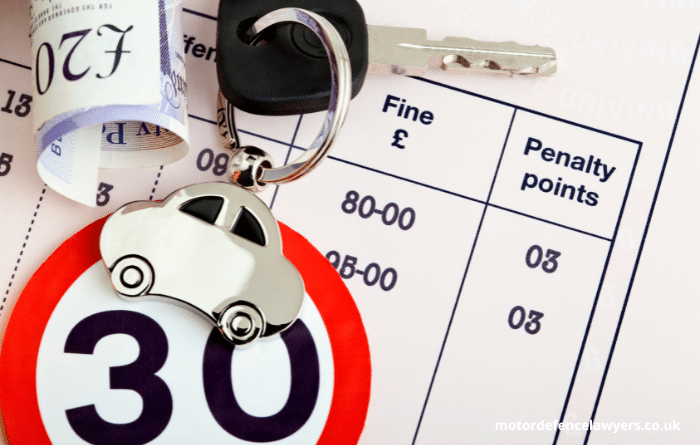Why Choose Us
- Ranked in the top 3 law firms by Trustpilot
- Nationwide Legal Coverage
- Free Consultation
- Fixed Fee Terms
- Competitive Rates
- Flexible Payment Plans
- Trusted Legal Care
- UK’s Leading Motoring Solicitors
5 out of 5
Our customers rate us
“EXCELLENT”
AS SEEN ON
09.11.2023
How To Remove Points From A Licence
There are a few ways to get points removed from a driving licence before they expire as standard after 3 years. The main circumstances are:
Ultimately, unless you qualify for one of these options, you’ll need to wait for points to expire after 3 years and for the offence to be removed from your DVLA record after a further 1 year.
If you have penalty points on your licence that you do not believe you should have it’s important to seek expert legal advice.
At Caddick Davies, we are experts when it comes to defending motoring offences, with decades of experience dealing with a diverse range of cases.
Whether you’re hoping to have the conviction or sentence appealed or wish to have the case re-opened to present mitigation, we can prepare a strong case that gives you the best chance of minimising the penalties faced and getting a successful outcome in court.
Contact our team for a free consultation at 0151 944 4967.
Read on to find out more about how points can be removed from your licence as we go through each option above in detail.
There is no specific procedure in place to allow for the removal of penalty points from your driving record but several legal approaches are available that can ultimately lead to penalty points being removed from a driving licence.
If you have received penalty points and do not believe that you should have then you may wish to re-open the case.
There are two main ways to re-open a case:
Section 142 of the Magistrates’ Court Act 1980 enables the court to re-open a case to rectify a mistake or error. An example of when this may be relevant is if you were unaware of or missed a court hearing and were convicted and sentenced in your absence.
It may also be relevant to re-open under Section 142 if you have never entered a plea to the offence but have been convicted and sentenced anyway.
Applications to re-open are often made at a court hearing and if successful any penalty points imposed will be removed. You will then be required to clarify your plea and then either proceed to sentence or trial depending on whether you enter a guilty or not guilty plea.
Understanding Statutory Declarations
Statutory declarations are statements of truth made to the court to have a case re-opened. In other words, they are a confirmation that something is true to the best knowledge of the person making the declaration.
Making a Statutory Declaration
A statutory declaration can be made in court before a Magistrate or in writing and be dealt with administratively. Should you wish for the declaration to be considered by the court in writing you would need to instruct a solicitor to be present for the signing of the document and to give you the perjury warning.
The Perjury Warning
The perjury warning states that anyone knowingly and willfully making false statements will be guilty of an offence and liable to conviction. Statutory declarations are usually made in cases where you have been convicted of an offence without knowing about the proceedings against you. The most common example of this is when people are convicted of failing to provide driver details but never receive a notice requesting details of the driver.
Consequences of Making a Statutory Declaration
If you make a statutory declaration, and the court believes you were unaware of the police proceedings, the matter will be re-opened. Once re-opened any sentence imposed will be withdrawn and importantly any points will be removed from your licence. You will then be required to provide your plea regarding the re-opened charges.
Timeliness of the Statutory Declaration
The most important consideration is that any statutory declaration must be made within 21 days of your knowledge of the conviction. If you believe that you can submit a statutory declaration you should obtain legal advice at the earliest opportunity.

If you have found yourself convicted of a motoring offence in the Magistrates’ Court you have an automatic right to appeal the case to the Crown Court.
You can appeal a case in two separate ways:
– Appeal conviction
– Appeal sentence
Appealing a conviction or sentence to get points removed is difficult if you plead guilty. You usually can only appeal if you went to trial and were convicted.
Look at the details of your case to see if you have grounds to appeal the conviction or if the sentence was too harsh. For either, you must file an appeal within 21 days of the sentence. You can request more time to appeal but need a good reason why it’s late.
Keep in mind that if you appeal and lose, you could end up with a tougher sentence or have to pay court costs.
Unless there are clear issues with your conviction or sentence, appealing may not be worth the risk. Consulting a lawyer can help evaluate if you have a strong case to appeal before deciding.
Unlike applications to re-open a case, appealing does not automatically lead to penalty points being removed from your licence.
Should you wish to have the points removed you will usually be required to wait until the outcome of the appeal hearing. Depending on whether you have appealed against conviction or sentence, as well as whether the court finds in your favour, you may have the penalty points removed from your licence or the number of points reduced.
Having points removed from your licence under Section 35 of the Road Traffic Offenders Act 1988 for totting-up is not so much an action you can take but more an omission to act.
Should you find yourself at risk of a driving disqualification for accumulating 12 or more points within 3 years (totting-up) this can lead to the removal of penalty points from your licence.
The starting point for the court is that you should be disqualified for 6 months if you reach 12 or more points. When imposing any disqualification for totting-up any points taken into account (i.e. those that have taken you to 12 or more) will be removed from your licence. This means that when you get your licence back after 6 months you may be left with 0 points.
For more details on totting-up matters, refer to our blog on totting up.

Most situations in which penalty points could be ‘removed from your licence’ involve dealing with the original offence again. This may be by way of a re-opening or appeal. At this stage you will often be faced with the decision to either challenge the case and enter a plea of not guilty or attempt to reduce the points endorsed and proceed with sentencing.
If you are considering challenging the case then the process is relatively simple and would require the listing of a trial date, review of evidence and preparation of a defence.
However, if you wish to look at reducing the points endorsed there are many options available depending upon your specific circumstances.
Some possible approaches which can lead to a reduction of points following a re-opening or on appeal are:
– Presenting mitigation
– Entering a basis of plea
– Entering a guilty plea ‘in the alternative’
– The entering of a plea bargain
Further reading: What you need to know about accumulation and removal of penalty points
No, you do not need a paper driving licence for points to be endorsed. All UK driving licences are now recorded digitally, so any points will automatically be added to your digital record. You can view your penalty points by accessing the DVLA’s online View Driving Licence service.
In most cases, no. Getting penalty points does not typically require retaking your driving test unless you are a new driver still within 2 years of passing. New drivers who acquire 6+ points within 2 years of passing their test will have their licence revoked and need to retake both the theory and practical driving tests. Outside of this scenario, points themselves do not require a re-test. However, a court may impose a discretionary re-test requirement if you are convicted of certain serious offences like dangerous driving.
Penalty points will stay on your UK driving licence for 4 years from the date of conviction. They will show as expired endorsements after 3 years but remain on your licence record for the full 4 years.
There are a few key reasons why you may want to pursue options to remove points early rather than just waiting for them to expire after 3 years:
So in summary, removing points early provides financial, practical and mental benefits compared to just waiting out the 3-year expiry period.
Yes, you must inform your insurance provider if you receive any driving penalty points. Failure to do so could invalidate your policy.
Yes, you can check your penalty points online by accessing the ‘View driving licence’ service on the GOV.UK website and entering your driving licence number, national insurance number and postcode.

To conclude, there is no way to simply have penalty points removed from your licence other than waiting for them to expire after 3 years.
Should however it be appropriate in your case, you might want to take one of the following steps to get them removed or reduced earlier than this:
The common factor with all of the available options is that they allow for the re-hearing of your case and for the court to reconsider its decision and the sentence imposed.
Depending on whether you wish to enter a guilty plea or a not guilty plea when re-opening or appealing the case, there could be a range of defences available and opportunities to mitigate any sentence imposed.
At Caddick Davies Solicitors, we have a team of specialist motor defence lawyers who specialise in representing motorists at risk of disqualification or penalty points. From the simplest to the most complex of cases, we are here to help. We start every enquiry with an informal discussion to get a clear understanding of your circumstances and are here to answer any questions that you may have in confidence.
We will talk you through the offence you have been charged with and we will advise on your prospects of success at court.
You can contact our office for a fee consultation on 0151 944 4967.
Why Choose Us
We have been successfully representing clients in motoring courts nationwide
Contact us for a free consultation, our expert solicitors will be able to discuss your case and advise on legal options.
Birmingham
Bradford
Bristol
Carlisle
Cardiff
Chelmsford
Huddersfield
Hull
Manchester
Liverpool
Leeds
London
Newcastle
Norwich
Nottingham
Sheffield